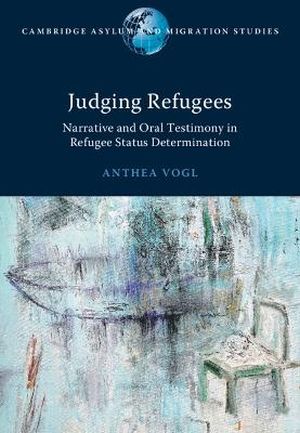We will be closed from 5pm Thursday 17th April for the Easter Bank Holidays, re-opening at 8.30am on Tuesday 22nd April. Any orders placed during this period will be processed when we re-open.

To access state-based refugee protection regimes, refugee applicants must speak. They must narrate the basis of their claims in person, often before a single decision-maker, repeatedly and at length.
In Judging Refugees Anthea Vogl investigates the black box of the refugee oral hearing and the politics of narrative within individualised processes for refugee status determination (RSD). Drawing on a rich qualitative archive of administrative oral hearings in Australia and Canada, Vogl sets global trends of diminished and fast-tracked RSD against the still-critical role played by the profoundly discretionary spaces of refugee decision-making, and the gate-keeping functions of credibility assessment.
Judging Refugees explores the disciplining role of 'good refugee' stories within RSD and demonstrates that refugee applicants must be able to present their evidence in model Anglo-European narrative forms to be judged as authentic, credible and ultimately, to be granted access to protection.